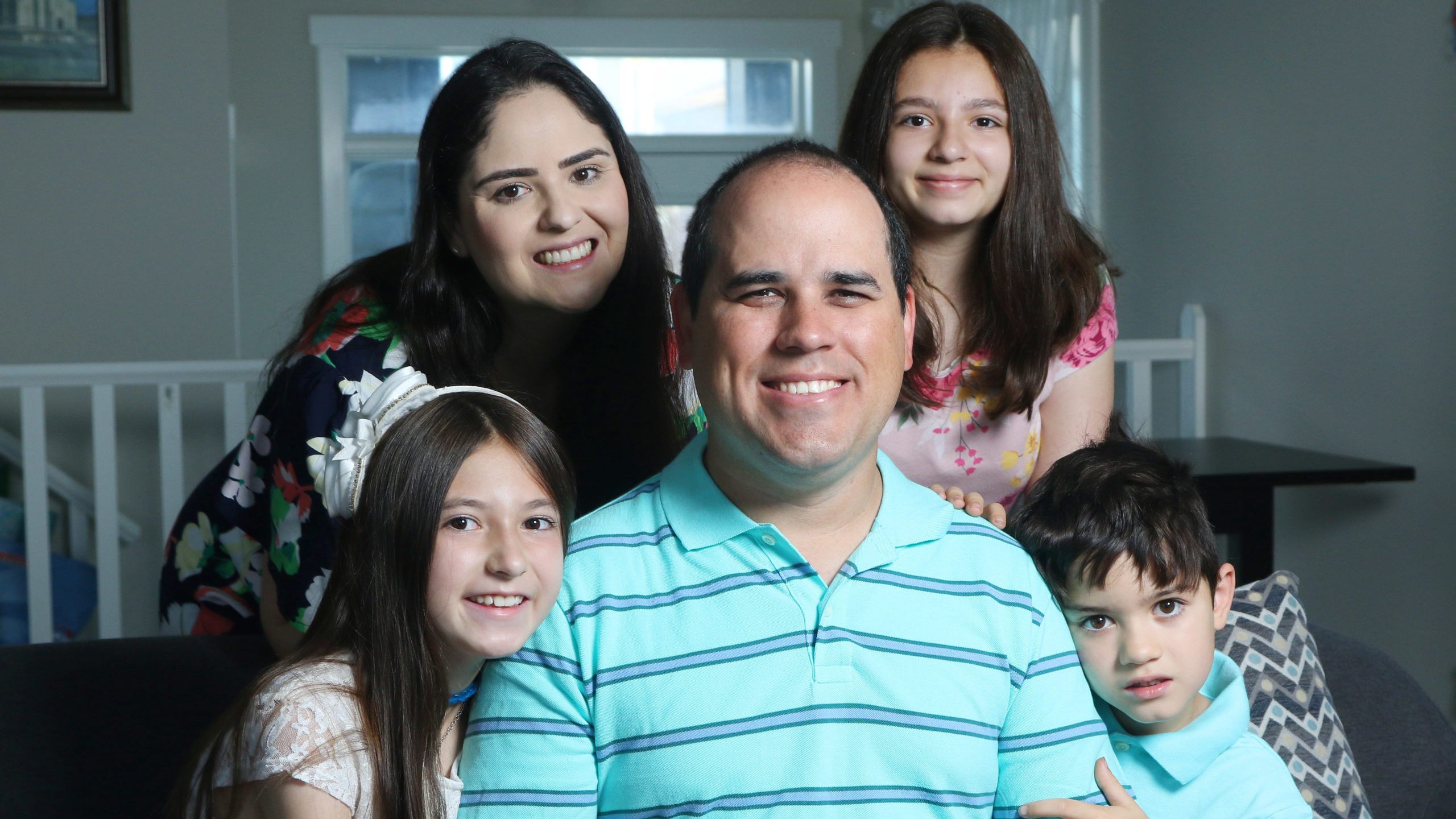More and more new Canadians are working in oil and gas, drawn by the opportunity for career advancement, a higher quality of life, and the potential to contribute to innovation that provides more sustainable energy and makes the world a better place.
Cassio Lima, Brazil
Cassio Lima, 38, moved his family to Calgary from Brazil about 18 months ago. He lives with his wife, two stepdaughters and his son and now works as an operator with oilfield contractor Magnum Cementing Services.
“I wanted to give my kids a better future. I was looking for a better life for my family and conditions here are better than they were where I was living in Brazil,” says Lima, who graduated this year from the petroleum engineering technology program at the Southern Alberta Institute of Technology (SAIT).
“The oil and gas industry means everything to me. It means giving me a job, a lifestyle. It means energy security. It means comfort and quality of life. From a newcomer’s perspective, I see a lot of opportunity.”
Lima is not alone in that view. According to Canadian Energy Centre research, the number of new Canadians working in oil and gas extraction is rising.
There were 15,600 landed immigrants employed in oil and gas extraction in 2020, up from 8,800 in 2006. That’s a rebound last year to near the record 16,000 before the oil price crash in 2014.
Carla Bantaya, Philippines
Carla Bantaya admits she wasn’t initially interested in a career in oil and gas. She came to Alberta from the Philippines as a child when her father found work in Fort McMurray.
After growing up in the oil sands city, she’s followed in her father’s footsteps and after graduating from SAIT is today an oilpatch engineering technologist in training.
“My father worked in the industry. That’s how we got here. He worked all over the world and settled here in Canada,” Bantaya says.
She was originally on the path to become a nurse, but started to pay attention to energy issues globally and began to reflect on a different career path.
“Working in the industry we all have the opportunity to contribute in producing sustainable, clean energy to improve our standards of living through collaboration and innovation,” she says.
“The work is always fun and exciting and there’s lot of growth opportunity. It challenges you to think critically and develop new skills along the way.”
Landed immigrants are many of the students who go through SAIT’s petroleum programs, says Jim Esposito, instructor in SAIT’s MacPhail School of Energy.
He says the oil and gas industry is present around the world and people from many countries see that and want to come to Canada. Part of the reason is the stability and security offered by the industry here.
Daniel Kopperschmidt, Brazil
Another recent SAIT grad is Daniel Kopperschmidt, 38, from Brazil. He moved to Calgary in August 2017 with his wife and then seven-year-old daughter, and now also has a seven-month-old.
Kopperschmidt studied engineering in Brazil, but says when he graduated in 2016 the job prospects there were not good.
Today he is working as a drilling completions specialist with GeoLogic Systems.
“It means a lot to me. When you’re moving out of your country and moving to a different culture you don’t know what to expect, although I did a lot of research and planning before I came here,” he says. “I’m very happy here now.”
Important source for skills
Immigrants have long been an important source of new workers for Canada’s oil and gas sector and that’s likely to continue, says Carol Howes, vice-president of PetroLMI.
The labour information provider forecasts a modest recovery in Canadian oil and gas jobs through 2023.
“What’s really increasingly compelling is we are going to need new skills in the oil and gas industry that may traditionally not have been associated with oil and gas,” Howes says.
This includes skills in low carbon ‘energy-adjacent’ sectors like renewables, carbon capture, utilization and storage, and biofuels.
“As the industry is getting busier, we’re starting to see those shortages,” Howes says. “I know the industry is looking to newcomers to the country to be part of that opportunity for growth.”
The unaltered reproduction of this content is free of charge with attribution to Canadian Energy Centre Ltd.
